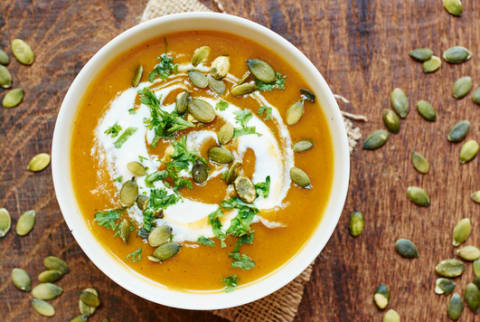Advertisement
Are You Deficient In Zinc? Eat These Foods


Zinc is a vital micronutrient that's often overlooked. Zinc supports numerous enzymes in the body, strengthens the immune system, and helps with wound healing, synthesis of DNA, and normal growth and development during pregnancy, childhood, and adolescence.
It's associated with many problems when deficient, including thyroid abnormality, acne, fertility struggles (mainly in men due to decreased sperm count), decreased immune system, thinning hair, rashes, loss of appetite, weight loss, growth impairment, delayed wound healing, and even depression.
Zinc is often used in the treatment of acute colds and macular (eye) degeneration. Medication like birth control pills, antibiotics, and over-the-counter antacids can impair zinc function over time.
There's another side to this, as well, when too much exposure to zinc can cause toxicity as well as disrupt copper and iron storage. Zinc is often found in paint, dyes, and ointments. It causes GI upset, confusion, as well as rashes. Studies also link excess zinc to prostate cancer.
So, I stress having your integrative and functional care provider check your zinc levels before you start any over-the-counter supplements because you may not need them.
Side effects of taking oral zinc can include nausea and vomiting, diarrhea, headache, lethargy, and an unpleasant taste in the mouth. So I always encourage taking the supplement with food but prefer patients get it naturally through foods.
Here are some top food options to ensure you are getting adequate zinc in your diet:
Shellfish
Shellfish have good amount of zinc—especially oysters, which have about 76 grams of zinc for a serving of six medium oysters. That's seven times more than the daily recommended value for adults (RDA), which is about 10 grams per day, depending on age and whether you're breastfeeding and lactating.
Alaskan crab has about 6 grams for 3-ounce serving, and lobster has about 3.8 grams for a cooked 3-ounce serving.
Meat
Meat is a good source of zinc, including beef shanks with 8.9 grams per serving, pork shoulder at 4.2 grams per serving, pork tenderloin at 2.7 grams per serving, 3.4 grams for one chicken leg, and 1 gram for a serving of chicken breast.
Meat is also rich in iron, B12, and protein.
Fortified breakfast cereals
Here's a reason to eat more cereal: zinc.
A lot of cereals are fortified with about 25 percent of the daily recommended allowance per serving, which is usually about ¾ cup.
Dairy
Diary provides a good amount of zinc in cheeses, yogurt, and whole milk with approximately 1 gram of zinc per serving. More reasons to eat more cheese and dairy if you aren't lactose intolerant!
Nuts & Seeds
Pumpkin seeds, cashews, and almonds are excellent snacks and a good way to get additional zinc into your diet. Nuts range from 1 to 2 grams of zinc per serving, with pumpkin seeds being the highest.
Nuts and seeds are filled with healthy omega-3 fatty acids, protein, and vital minerals including magnesium, and the additional zinc you get from them is an added bonus!